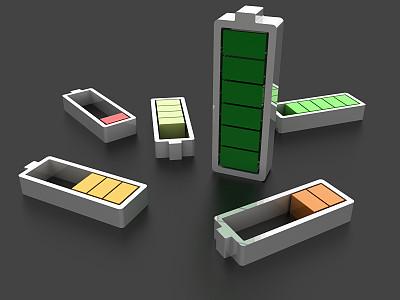What are lithium batteries used for?
Jul 05, 2019 Pageview:1330
The technology in the use of renewable energy has been on the rise over the last few years. With the whole world concerned about pollution from fossil fuels, batteries are the best option for restoring the green.
Among the different types of batteries, lithium ones have become very popular. They are used in many devices, especially those that need a lot of power.
As the world shifts more towards technology, the use of portable devices is on the rise. These devices don’t need to be plugged in power all the time, and that is why batteries are very important.
Why do we use lithium batteries?
Lithium batteries, as mentioned above, are among the best types. They have been around for decades, and their power has been proven beyond doubt.
One of the major challenges to their use is that they are quite expensive. Compared to alkaline batteries, you can find lithium batteries at a much higher price. Apart from that, they are not as readily available as the others.
However, there are many reasons these batteries are used despite the price. Here are some things you should know:
Strength and benefits of lithium
The use of lithium as an element has been witnessed since the 1970s. It has been a great source of treatment for manic-depression illness or bipolar disorder. This explains why it is so popular in many regions of the world where medical practices are held high.
Apart from being a medical supplement, it is one of the most powerful components in modern batteries. Lithium batteries power many of the electrical devices you see around. From Smartphones to electric vehicles, they all depend on lithium batteries to function.
In simple terms, lithium is a powerful metal that is used to store electric power. Such power can be used to run only devices that require high energy.
Diverse purpose
Lithium has such diverse purposes and helps humanity. Consider scientific explanations of some of the most functional units. Science links most things to mechanisms in which a combination of connected parts can produce changes.
For instance, the brain is seen as a mechanical component with synapses connecting neurons. As such, they help each other to exhibit reactions where necessary. The brain, therefore, works as a single unit containing different parts.
In the same manner, science has investigated the mechanisms in lithium and brought it into great use with batteries. As such, lithium batteries contain one of the most diverse metals that allow for proper mechanisms to happen just like it affects the brain.
Lithium is a simple element
Lithium is only a third as a simple element, after hydrogen and helium. We can understand this from the point of atomic mechanisms, which is the electromagnetic force that keeps things glued together. Therefore the electrons are attracted toted to protons which are then kept together by the strong force.
Also, molecular mechanisms bring in another point of view when describing lithium. It states that lithium can combine with carbon into lithium carbonate. This is a substance given to people with bipolar disorder. And that explains as well why it is so useful in batteries.
Lithium is highly reactive
Anyone who has interacted with lithium will tell you it is one of the most reactive elements. In electrical conductive, an element is only good for use if it can allow an easy and fast flow of current.
Lithium readily loses its outermost proton. This allows for current to flow easily, making the element a great consideration for batteries.
Weight
Most metals are very heavy. Even if they were good conductors, it would be very hard to use them in batteries.
Since most batteries are used in portable devices like phones and laptops, a light element is needed. Some cars require many batteries as well, and the last thing you want is to increase their weight. Lithium is very light as it is reactive. This makes it an ideal choice for batteries.
Durability
You cannot compare the durability of lithium batteries to alkaline ones. Lithium batteries have proven to last for more than 15 years.
And the best part is, they are rechargeable. Lithium ions and electrons can move easily back into negative electrodes. This is why all rechargeable devices use lithium batteries.
It is not easy to understand the mechanisms behind the usefulness of these batteries. In general, lithium is a great element that has a lot of benefits to people.
Can you use lithium batteries anything?
Using lithium batteries is specific to certain gadgets and devices as much as they are useful and much durable, not every battery-powered device can accept them.
You have to understand what device you have and whether it requires rechargeable batteries. Since the batteries can be recharged, the device should have a charging option.
What things have lithium batteries?
You can find lithium batteries in the following devices:
Pacemakers
These devices require a strong power to work for a long time. This is why similar implantable medical devices are designed with lithium-iodide batteries that can last for long. They can work for more than 15 years without requiring replacement.
Digital cameras
Lithium batteries have become very useful in cameras. One can take many pictures before they are required to change the batteries. But you have to be careful and strictly follow the manufacturer’s recommendation regarding use.
PDAs and Smartphones
Smartphones have become very popular today. These are devices that incorporate cell phones, PDAs, music, and cameras. As such, they require more electrical power to function, which comes from lithium batteries.
Watches
Have you ever wondered why watches stay for a very long time without requiring battery change? Well, that is one of the attractive features manufacturers have to consider. Lithium batteries are the best option for them.
Final thought
Lithium batteries are becoming increasingly useful. As such, they are being used in several devices. Other miscellaneous devices that have such batteries include thermometers, remoter car locks, MP3 players, hearing aids, calculators, and many others.
- Prev Article: How to get new lithium battery in China
- Next Article: Go Deep into the Lithium Battery Life
Leave Message
Hottest Categories
-
Hottest Industry News
-
Latest Industry News











